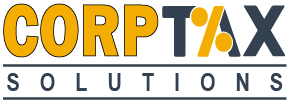Understanding Sections 236G & 236H – What They Mean for Your Business
Sections 236G and 236H of the 2025–2026 budget require advance tax collection at the supply chain’s point of sale, from importers and manufacturers to distributors, wholesalers, and retailers. Let’s dissect it.
➤ Section 236G: Sales to Distributors and Wholesalers
Who collects the tax?
The responsibility lies with manufacturers or commercial importers — they have to collect advance tax at the time of selling their goods.
Who pays the tax?
The buyers, which include distributors, dealers, and wholesalers, are the ones who pay this tax as part of their purchase.
Updated Tax Rates for 2025:
If you’re selling fertilizer, the advance tax is:
- 0.25% if the buyer is on the Active Taxpayers List (ATL)
- 0.7% if the buyer is not on ATL
For all other goods, the advance tax is:
- 0.1% for ATL-registered buyers
- 2% for non-ATL buyers
Note: This tax isn’t final — it’s adjustable. That means buyers can subtract it later when filing their annual income tax returns.
- Good news: It’s adjustable—tax paid can be claimed during annual filings.
➤ Section 236H: Retail and Wholesale Sales
• Coverage: Sales to chain distributors, manufacturers, and households by wholesalers and retailers;
• Prices for 2025:
o ATL buyers: 0.5%
o Non-ATL: 2.5%
• They also reduce the overall tax burden
The Reason Why They Exist
The objectives are to bring unregistered companies into the formal sector and widen the tax base. Higher advance tax rates trigger non-ATL companies to register early and also induce compliance and transparency.
Practical Problems
- Compliance burden: Its acceptance of installment documents and procurement of
buyer’s CNIC/NTN can be time-consuming, especially for small businesses.
• Trader resistance: Small businesses do not want to exchange their personal tax IDs due to a lack of confidence and fear of auditing.
- POS integration: Technical complexity of systems required to track VAT might discourage use.
How to Make Travel Easy
- Use IRIS & ATL
o Register via the FBR’s IRIS portal and add your name to the Active Taxpayers
List (ATL) to be eligible for discounted rates.
- At the time of sale, confirm buyer documentation and acquire CNICs and NTNs.
Compliance is aided by combining registration and delivery.
- Maintain Audit-Ready Invoices
o Record each clothing, chemical, or seed sale with full tax details and receipts.
- Build POS Infrastructure
o Integrated systems streamline VAT, CITS, and advanced tax handling—investearly if you can.
- Plan Tax Payments
o Because taxes are adjustable, maintain accurate records to claim credits later.
Final Thoughts
Sections 236G & 236H are here to stay—but they’re also a signpost toward formalizing Pakistan’s business landscape. For wholesalers, importers, and retailers, bringing your business into the ATR network and using digital tax tools smartly can turn compliance into a competitive edge.
Do you need help?
So that you only remit the correct taxes, Corptax Solutions will assist you in ATL registration, IRIS submission, POS integration, and preparation of monthly returns.
Firms and practitioners who must deal with the 2025 rules need to understand and adapt to Sections 236G and 236H. Stay compliant and keep at it!
